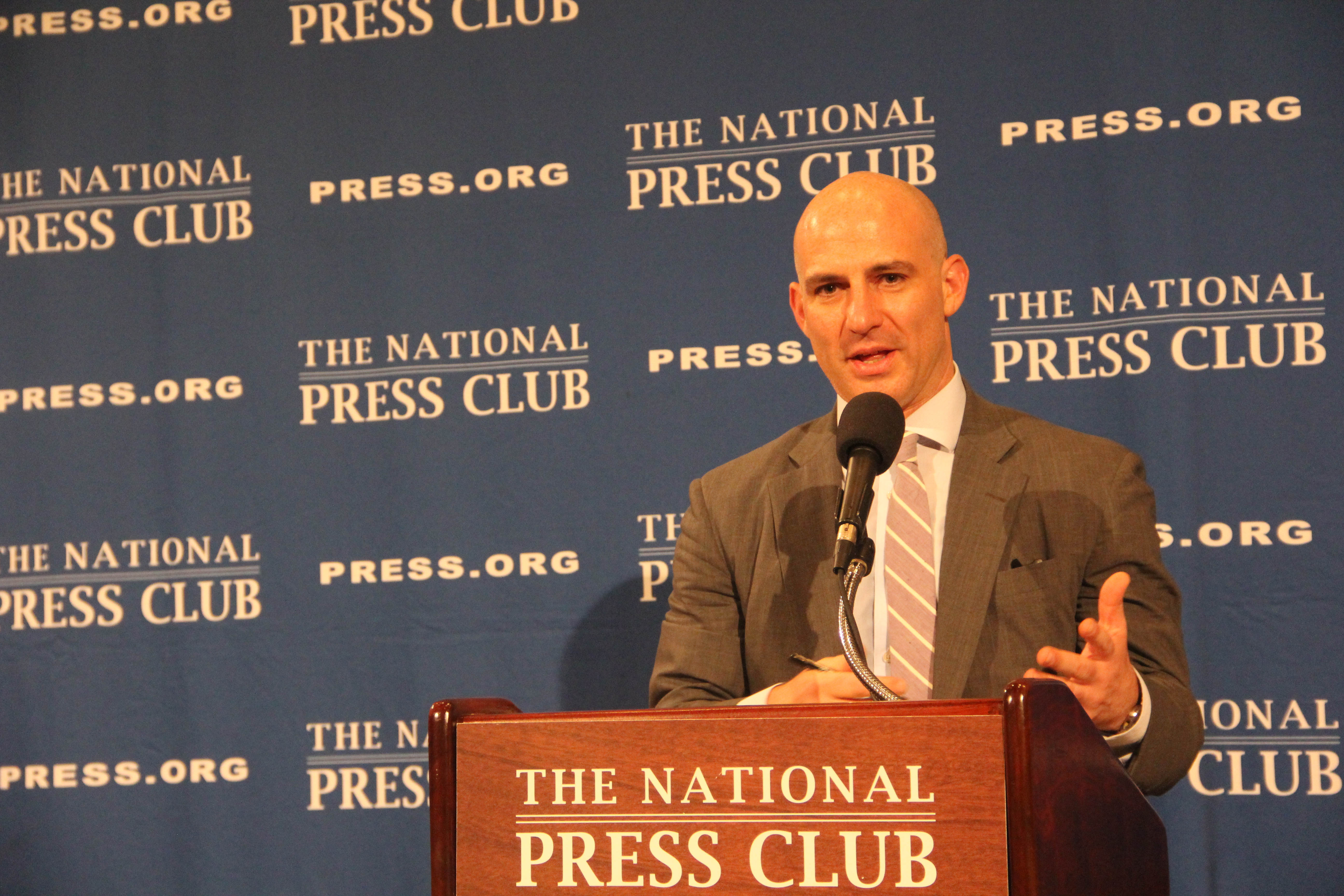WASHINGTON – Michael Rosenberg, a reporter for the New York Times, said he was surprised by the harsh reaction to an article that led to his expulsion from Afghanistan. Rosenberg expressed desire to return if he’s ever allowed.
Rosenberg published a story on Aug. 18, raising the possibility of a coup—setting up an interim government in Kabul. According to his piece, backers of the supposed interim government viewed it as a way to move forward after the country’s contested presidential election left a muddy situation.
Under the supervision of the United Nations, 8.1 million votes from the June run-off election are being recounted as both presidential candidates — Abdullah Abdullah and Ashraf Ghani — work to create a unity government. The goal is for constitutional change that would create a stronger parliamentary system in Afghanistan.
“Within a few days, the deal was already falling apart,” Rosenberg said to an audience at the National Press Club.
Soon after his piece on a potential coup was published, Rosenberg was called to the Afghanistan attorney general’s office where he said officials criticized the story and demanded the identities of his sources. He has been invited for a “short” and “casual” conversation. “It was not casual,” the reporter said.
On Aug. 20, Rosenberg was kicked out of Afghanistan.
But before being expelled, Rosenberg found out via television that he was banned from leaving the country. In an apparent reversal, he soon received an order to get out of Afghanistan and not return.
Critics, including a UN representative and the United States Ambassador to Afghanistan, decried the move as a step backwards. Rosenberg was the first western journalist expelled since the fall of the Taliban regime in late 2001. U.S. Ambassador James B. Cunningham called it “a regrettable step backward for the freedom of the press in this country.”
In recent months, Taliban insurgents have made a big push for power. In a matter of months most U.S. forces and other NATO troops are scheduled to leave; putting Afghanistan’s defense in the hands of the Afghan military.
Of the system that’s struggling to determine a new president for Afghanistan, Rosenberg said it was well designed, but that rules had not been followed.
“The President has near dictatorial power, it’s winner take all,” Rosenberg said.
In response to the criticism, Afghanistan President Hamid Karzai’s office released statements equating Rosenberg’s article to an act of espionage. But both men seeking to replace Karzai, Abdullah and Ghani, have said they would rescind the expulsion upon taking power.
Rosenberg said he wants to go back. “It’s a bit of a bummer getting thrown out of a country for a story that ran on page A7.”

